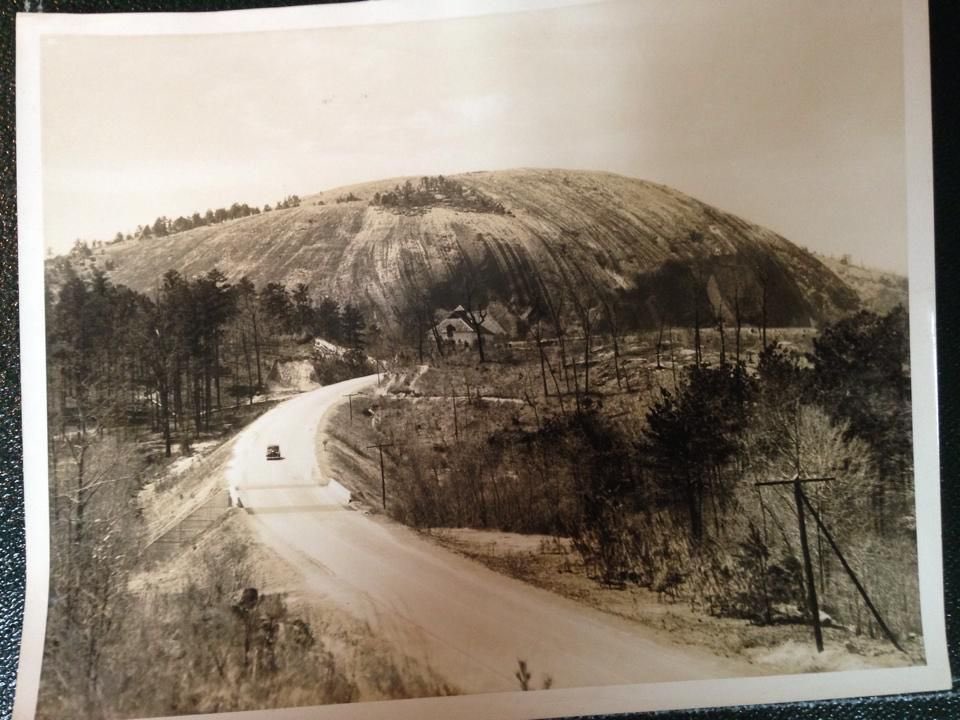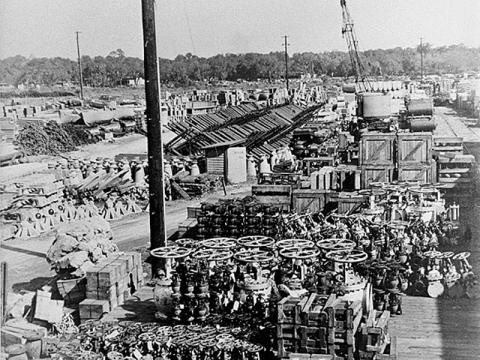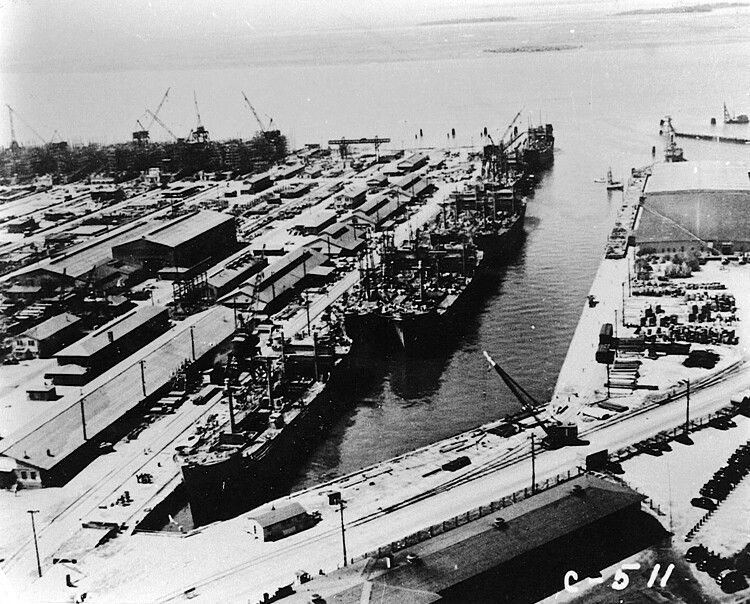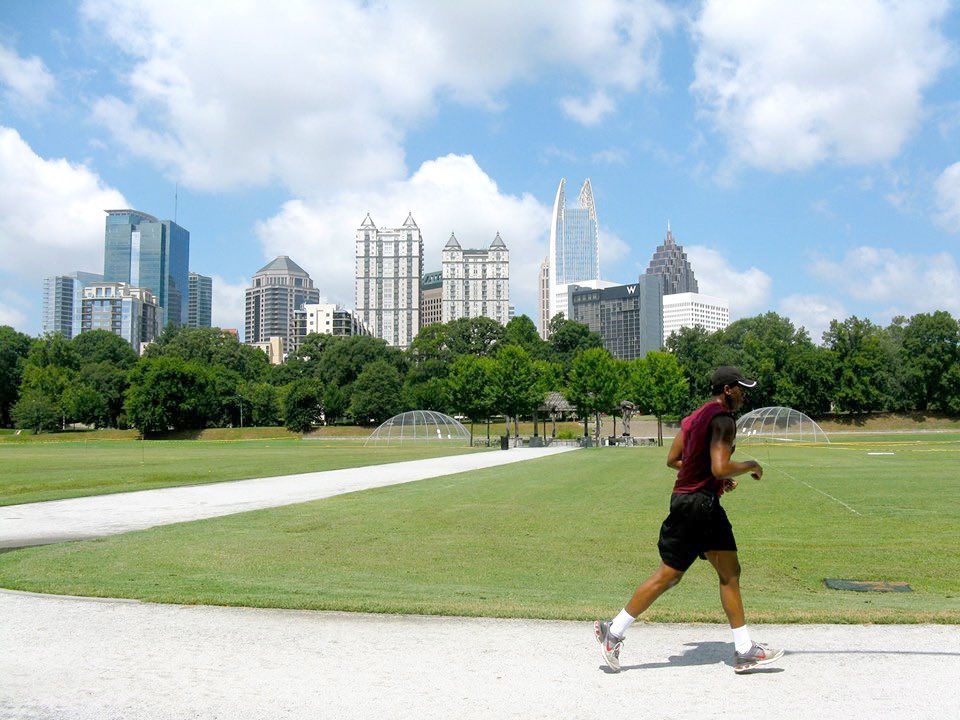
A great CNN doc titled “Dreamland : The Burning of Black Wall St” was recently released, detailing the Tulsa Race Massacre.
That doc inspired me to do this #ThreadThursday on Atlanta’s version of a Black Wall Street.
Known as “Sweet” Auburn Avenue
That doc inspired me to do this #ThreadThursday on Atlanta’s version of a Black Wall Street.
Known as “Sweet” Auburn Avenue

So in the 1880’s, 20 years after the Civil War, Atlanta reestablished itself as the hub of the regional economy.
As the general population & black population grew, there was some...tension.
As the general population & black population grew, there was some...tension.

The rapid growth strained municipal services, increased job competition & led to the emergence of a Black upper class.
All of this was met with pushback and animosity from the white citizens of Atlanta.
It came to a head during the gubernatorial race of 1906.
All of this was met with pushback and animosity from the white citizens of Atlanta.
It came to a head during the gubernatorial race of 1906.

There were 2 candidates.
Hoke Smith, publisher of the Atlanta Journal & Clark Howell, editor of the Atlanta Constitution newspaper.
They both used their media influence & ran on a platform of who could be the most racist & play to white fears to get the most votes.

Hoke Smith, publisher of the Atlanta Journal & Clark Howell, editor of the Atlanta Constitution newspaper.
They both used their media influence & ran on a platform of who could be the most racist & play to white fears to get the most votes.


So as you could probably guess...
To increase newspaper sales & their public profile, they began running FALSE reports of black crime across the city from theft to rape.
Then used it as a way to justify the disenfranchisement of the black population during the Governor’s race.
To increase newspaper sales & their public profile, they began running FALSE reports of black crime across the city from theft to rape.
Then used it as a way to justify the disenfranchisement of the black population during the Governor’s race.

On Saturday, Sept. 22, 1906 the city reached a boiling point.
The papers reported 4 separate stories of black men raping white women, none were true.
White mobs began to gather downtown & began attacking black people.
The papers reported 4 separate stories of black men raping white women, none were true.
White mobs began to gather downtown & began attacking black people.

The massacre went on for days.
It started downtown on Decatur St & went to 5 Points, the West End & finally south into the Carver area of South Atlanta.
When it was over, 25 blacks & 2 whites were confirmed dead with hundreds more wounded & many black businesses destroyed.

It started downtown on Decatur St & went to 5 Points, the West End & finally south into the Carver area of South Atlanta.
When it was over, 25 blacks & 2 whites were confirmed dead with hundreds more wounded & many black businesses destroyed.


Following the events, concerned with the national & international image of Atlanta, white civic leaders tried to make amends with the black elite.
They came to an agreement to create a black central business district that would be protected from further riots.
Auburn Avenue.
They came to an agreement to create a black central business district that would be protected from further riots.
Auburn Avenue.

Over the next 50 years, black businesses that were destroyed in the mayhem, in areas like Downtown, the AUC & Old 4th Ward, were now flocking to Auburn Avenue.
One of the 1st of the institutions was founded by Alonzo Herndon.
One of the 1st of the institutions was founded by Alonzo Herndon.

Alonzo Herndon was born into slavery in Walton county. He was the son of his white enslaver, Frank Herndon & an enslaved woman Sophenie.
Set free after the Civil War at 7 years old, he, his mother, brother and grandparents began building a life for themselves.
Set free after the Civil War at 7 years old, he, his mother, brother and grandparents began building a life for themselves.

He eventually opened a very successful barbershop in Jonesboro where he stayed for 5 years before moving to Atlanta.
Arriving in early 1883, he secured employment as a barber in a shop on Marietta St, owned by a black man & after 6 months purchased half interest in the shop.
Arriving in early 1883, he secured employment as a barber in a shop on Marietta St, owned by a black man & after 6 months purchased half interest in the shop.

By 1904 he had 3 shops. His shop at 66 Peachtree w/ crystal chandeliers & gold fixtures, was advertised as the best in the south.
B/c of segregation, Black barbers served an exclusively white clientele of the city's top lawyers, judges, politicians & businessmen.
B/c of segregation, Black barbers served an exclusively white clientele of the city's top lawyers, judges, politicians & businessmen.

His barbershop's windows were smashed in that riot of 1906. That led to him relocating business to Auburn Ave.
While there, he used his money to establish the Atlanta Life Insurance Company & became the city’s first black millionaire.
You can visit his mansion to this day.



While there, he used his money to establish the Atlanta Life Insurance Company & became the city’s first black millionaire.
You can visit his mansion to this day.




A black Texan named Heman Perry established 2 other pillars of Auburn Ave.
A 2nd Black insurance company, Standard Life & Citizens Trust Bank.
Citizens Trust became the 1st Black owned bank to become a member of the FDIC.



A 2nd Black insurance company, Standard Life & Citizens Trust Bank.
Citizens Trust became the 1st Black owned bank to become a member of the FDIC.




Around these businesses were many small ones including Ma Sutton’s & The Royal Peacock (aka the Top Hat Club).
When it opened in 1938, Top Hat hosted local & national acts like Aretha Franklin, Marvin Gaye, Gladys Knight & was visited by celebs like Ali & Jackie Robinson.



When it opened in 1938, Top Hat hosted local & national acts like Aretha Franklin, Marvin Gaye, Gladys Knight & was visited by celebs like Ali & Jackie Robinson.




In addition to the black owned businesses and nightlife, Auburn Ave was home to places of worship for many black Atlantans.
The most notable church being Ebenezer Baptist Church. ⛪️
Relocating there in 1914.



The most notable church being Ebenezer Baptist Church. ⛪️
Relocating there in 1914.



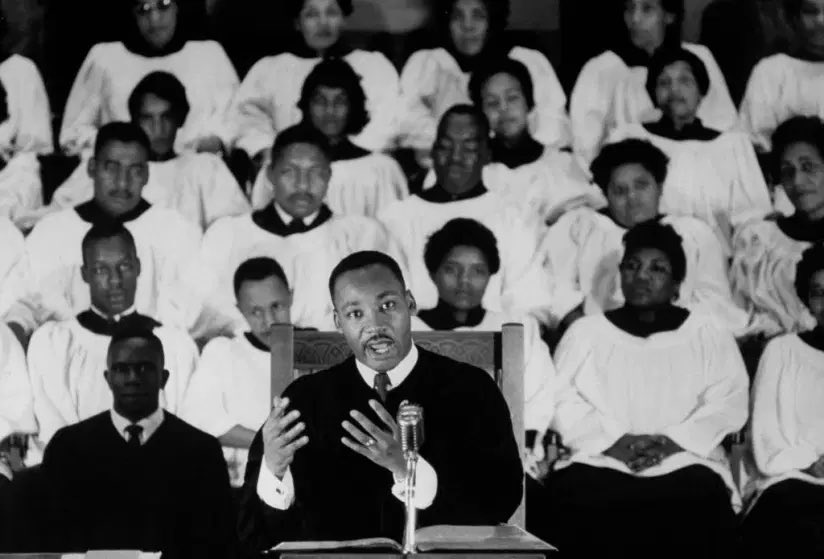
In addition to the black owned businesses and nightlife, Auburn Ave was home to places of worship for many black Atlantans.
The most notable church being Ebenezer Baptist Church. ⛪️
Relocating there in 1914.



The most notable church being Ebenezer Baptist Church. ⛪️
Relocating there in 1914.




Alfred Williams 1st served as pastor of the new location.
MLK Sr, who married Williams’s daughter served as assistant pastor from 1926 to 1930 & became pastor after his father in law’s death.
In 1960, King Sr recruited his elder son to be copastor, Martin Luther King Jr.



MLK Sr, who married Williams’s daughter served as assistant pastor from 1926 to 1930 & became pastor after his father in law’s death.
In 1960, King Sr recruited his elder son to be copastor, Martin Luther King Jr.




The King family home, still standing today, is located on Auburn Ave.
Without the events previously mentioned, one wonders if it would’ve changed the whole trajectory of MLK Sr & MLK Jr’s lives and subsequently our own...

Without the events previously mentioned, one wonders if it would’ve changed the whole trajectory of MLK Sr & MLK Jr’s lives and subsequently our own...


Dubbed “Sweet” Auburn by black civic leader John Wesley Dobbs, Fortune mag named it “the richest Negro St in the USA” in 1956.
But the urban renewal movements of the 1950’s & highway developments of the 1950’s-70’s would be a 1-2 punch that systematically destroyed Auburn Ave.

But the urban renewal movements of the 1950’s & highway developments of the 1950’s-70’s would be a 1-2 punch that systematically destroyed Auburn Ave.


The urban renewal movements, started to remove “blight”, ended up trying to cleanse downtown of poor white & all Black communities.
Highways like I-20 were deliberately & purposely built through majority black communities like Sweet Auburn, the AUC & West End.

Highways like I-20 were deliberately & purposely built through majority black communities like Sweet Auburn, the AUC & West End.


The highway fundamentally changed the character of the neighborhood.
It displaced 30k residents. There was no entrance/exit onto Auburn, diverting cars around it. The loud highway made it unpleasant to walk the street. The underpass was home to petty thieves & drug dealers.



It displaced 30k residents. There was no entrance/exit onto Auburn, diverting cars around it. The loud highway made it unpleasant to walk the street. The underpass was home to petty thieves & drug dealers.




This paired w/ integration accelerated the downfall.
As middle & upper class Black political & economic clout rose, many more Black residents fell deeper into poverty. In mid 70s Sweet Auburn, nearly 1/2 of the 9,000 residents lived below the poverty line & in public housing.



As middle & upper class Black political & economic clout rose, many more Black residents fell deeper into poverty. In mid 70s Sweet Auburn, nearly 1/2 of the 9,000 residents lived below the poverty line & in public housing.




While simultaneously in 1971, Ebony called Atlanta the South’s “New Black Mecca”, showcasing black entrepreneurs.
The city elected the south’s 1st black mayor in 1973, Maynard Jackson. Grandson of previously mentioned John Wesley Dobbs.
(I had to include clips of the magazine!)



The city elected the south’s 1st black mayor in 1973, Maynard Jackson. Grandson of previously mentioned John Wesley Dobbs.
(I had to include clips of the magazine!)




Like how I-20 split Sweet Auburn in 2, desegregation revealed divisions that existed in Black Atlanta & deepened inequalities between elites & everyone else.
Since the 70s there’s been multiple attempts to revive Sweet Auburn, but none have been able to bring it fully back.

Since the 70s there’s been multiple attempts to revive Sweet Auburn, but none have been able to bring it fully back.


If you liked this thread go ahead and like/RT & follow me so you don’t miss out on the next one!
What do you want to see for my next #ThreadThursday?
Also, check out these threads you may have missed! 👇🏽
What do you want to see for my next #ThreadThursday?
Also, check out these threads you may have missed! 👇🏽
https://twitter.com/donovanreyno1ds/status/1392642928925937680
• • •
Missing some Tweet in this thread? You can try to
force a refresh









